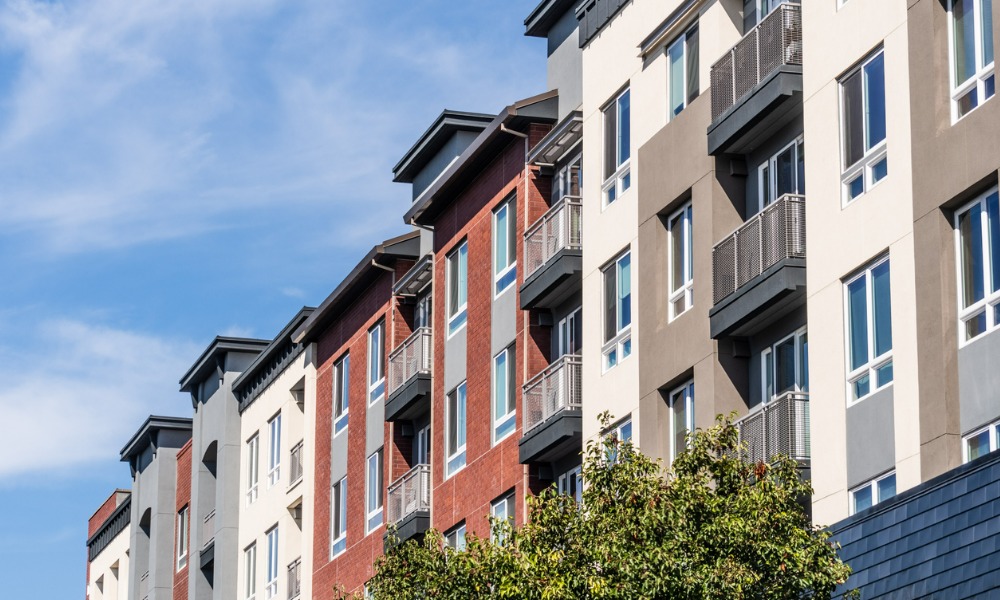Multifamily performance revealed in Yardi's latest report

The multifamily market saw moderate improvements in July, with national asking rents increasing $10 to a record of $1,717.
Rent growth stayed strong nationwide, according to the latest Yardi Matrix Multifamily Report. Annual growth increased at least 10% in 24 of the top 30 metros in Yardi’s report. However, overall rent growth is down 110 basis points to 12.6% in July and was 260bps below the February peak of 15.2%.
“Deceleration in multifamily rents came into full view in July,” Yardi analysts wrote. “Rent growth remains lofty just about everywhere by historical standards, but the rate of increase in high-growth metros is falling. For example, year-over-year rent growth in Orlando (20.2% in July), Miami (19.5%) and Tampa (17.4%) is still high but dropped three to four percentage points in each market compared to the previous month.”
National occupancy rates hovered at 96% for the third consecutive month, a solid performance led by gateway or coastal metros. The markets that saw the largest increases in occupancy rates were San Jose (1.7%), New York (1%), Chicago (1%) and San Francisco (1%).
“Occupancy rates nationally remain firm but are declining in some high-growth metros, owing to the robust number of new deliveries and a slowdown in net migration,” Yardi analysts said. “Absorption was especially strong in San Jose, where the occupancy rate increased to 96.7% while new deliveries over the last year added 3.2% to stock. Apartment demand in the metro is benefiting from a return of young workers to offices and high single-family home prices that put homeownership out of reach for many.”
Read next: Multifamily lenders enjoy another record year - report
The average single-family unit asking rent jumped by $7 in July to $2,092, while year-over-year growth fell by 60 basis points to 11.2%.
“The moderating rent growth may be a product of an inevitable return to the mean, coincidental to the suddenly slowing economy, or some combination of the two,” the report stated. “Record rent growth in 2021 was driven by record-high absorption of 580,000 units in 2021, per Yardi Matrix. Absorption has ‘slowed’ to roughly half that pace in 2022, more in line with a normal healthy year.
“Meanwhile, economic growth is slowing, and consumer confidence is waning as the Federal Reserve has raised policy rates 150 basis points over the last two months in an effort to slow inflation. A weaker economy could cool gains, though apartment asking rents may not immediately respond to the Fed’s actions because rising mortgage rates have slowed the for-sale housing market. That might help demand for apartments as first-time homebuyers continue to rent and wait for a more opportune time to buy.”



